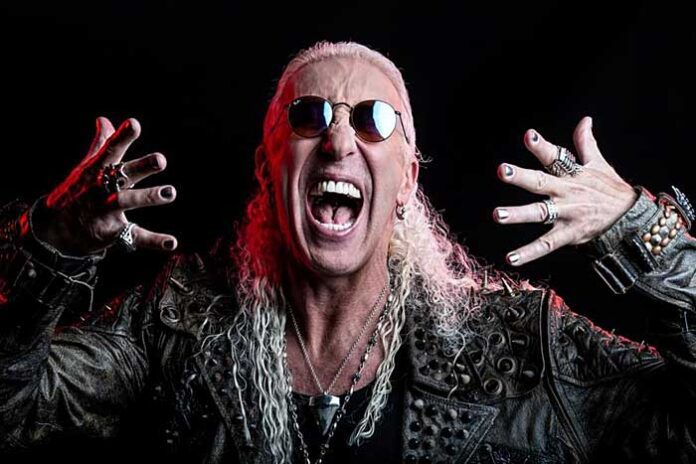
INTERVIEW WITH DEE SNIDER BY KELLEY SIMMS
Twisted Sister vocalist Dee Snider’s solo band is back with a vengeance. After releasing 2018’s For the Love of Metal, Dee was prepared to call it quits from recording and live touring. However, due to COVID, the state of the world in disarray, and the United States politically marred, Snider wanted to write songs and get things off his chest.
On Snider’s new blistering solo album, Leave a Scar, released through Napalm Records, the iconic singer has the fire burning inside of him once again. Backed by his ferocious band—featuring guitarist Charlie Bellmore, drummer Nick Bellmore, bassist Russell Pzütto, and guitarist Nick Petrino—the 12 banging tracks are one big punch in the face. Produced by Hatebreed frontman Jamey Jasta and mixed and mastered by drummer Nick Bellmore, Snider creates classic heavy metal infused with a modern metal flavor. Snider talks about getting back to rocking, Leave a Scar, his relationship with producer Jamey Jasta, and more.
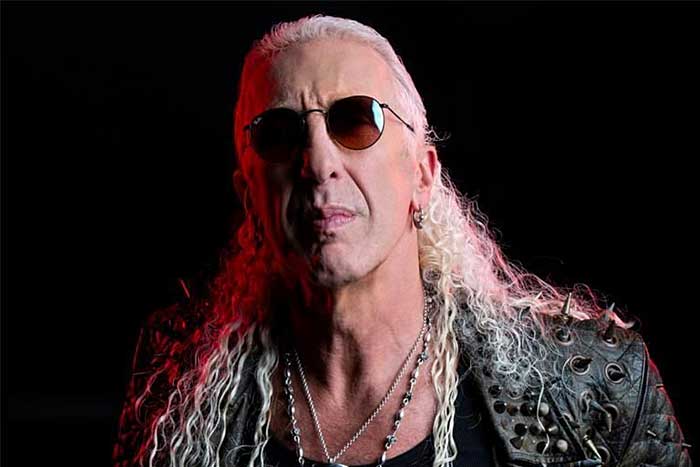
Did recording For the Love of Metal get the fire burning inside of you again?
Well, yes and no. Thank you to Jamey Jasta for helping me find my place in the contemporary metal scene with For the Love of Metal and making a record that connected with people and people felt had value. It wasn’t like an oldies album, it had freshness to it, but it was still Dee Snider and Jamey. I also at that point said, “You know what? I think I can walk away now.” In 2019 I told my family, I told my friends, I told my band and my management that I was done recording and performing live. And to make a public announcement about it, I didn’t want to be one of those guys, there’s too much of that going on, but I really thought in my mind that I had done what I wanted to do. But then COVID comes, then the state of the world, politics in the world—not just the United States, the United States is a mess, but that mess is going on all over the world. It’s a sign of the times, and I found myself bouncing off the walls wanting to say something on social media, like ranting and losing my brain. Then I decided that I was going to go back to the studio and do another record. So yeah, it brought me there. I wasn’t so sure it was going to keep going after For the Love of Metal.
“EVERY SONG ON HERE IS A DIRECT INSPIRATION FROM THE STATE OF THE WORLD TODAY AND THINGS THAT I WANT TO SAY TO PEOPLE.”
You reached out to Jamey again and told him you wanted to write for the new album, Leave a Scar. Were all those things you mentioned the inspiration for the lead-off track “I Gotta Rock (Again)”?
One hundred percent! I haven’t written anything since the 90s. I stopped writing after the second Widowmaker record, and at that point I said, “My time’s done, the younger guns are here and there’s no place for Dee Snider.” Subsequently, anything I did was a covers record, a Twisted Sister reunion. It was fun, but it wasn’t new music, new ideas. I wasn’t creating on that level. I was doing a lot of writing. I wrote a musical, I’ve written books. I was doing that. But because of the state of things, I not only wanted to do a new record, I wanted to be a part of the writing process for the first time. So, every song on here is a direct inspiration from the state of the world today and things that I want to say to people.
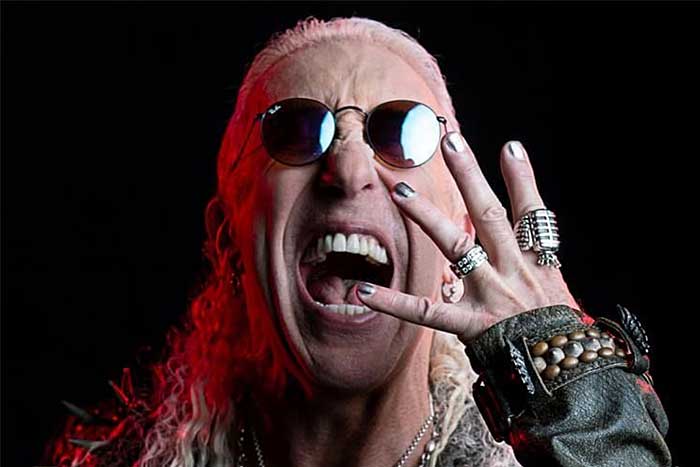
When did you and Jamey first become friends? What is your working relationship like?
I was on his podcast as a guest, and Jamey had challenged me. He said, “Your voice has a place in the pantheon of great rock voices. We’ve lost some greats. We need your voice. I’ve seen you live the years as strong as ever, and I challenge you.” He literally said those words. “I challenge you to make a contemporary metal record.” I said, “Who’s going to produce it?” He said, “I am.” I said, “Who’s going to write it?” Because as it goes, every time I write something it turns out like an old 80s song. I just couldn’t figure out how to make new stuff sound fresh. He told me that everybody is going to want to write for me, and he was right. When we went to do that record, For the Love of Metal, we had an outpouring, and we had contributions from Lamb of God, All That Remains, Toxic Holocaust, Disturbed, people from all these bands were submitting. Alissa White-Gluz sang with me. Howard Jones sang with me. It was this great metal community effort, but helmed by Jamey Jasta and Charlie Bellmore—the primary songwriters. And they showed me my voice, and I didn’t know what to expect from Jamey Jasta. I was friendly with him from MTV Headbanger’s Ball and stuff like that, but I only knew him from Hatebreed, and all of a sudden he’s writing melodies for me. I didn’t even know he could sing a melody. Once he showed me my place, it’s the first time I ever went back to the same production team for a consecutive record. I’ve never used the same people twice. I went right back to Jamey and the team and I said, “I want to be part of this.” I said, “We’ve got a band now, I know what we’re doing, and Jamey, me, and Charlie Bellmore can write these songs—we don’t need outside writers involved.” This album was created in-house, so to speak. We developed a relationship, we developed a trust, we developed an understanding with each other. And we full well knew what Dee Snider needed to do in 2021.
“WE DEVELOPED A RELATIONSHIP, WE DEVELOPED A TRUST, WE DEVELOPED AN UNDERSTANDING WITH EACH OTHER. AND WE FULL WELL KNEW WHAT DEE SNIDER NEEDED TO DO IN 2021.”
Leave a Scar is such a diverse metal record. Was it a conscious effort to change things up and make each song a bit different?
That’s the way it used to be. Albums from my era and from the 70s and the 60s, you heard a great variety. That was a time you felt comfortable doing different things on a record. Nowadays, people just put it in the groove and everything sounds the same for the entire record. I wanted to have that variety. I also felt this responsibility. I know that a lot of the older fans are stuck in their ways and you just can’t get them to budge, but I could bring some of them along and show them there’s some great value in the newer sounds and what’s going on. It was a very tough place to be. I wanted to ride the fence, so to speak. It’s easy to fall over either side, full on heavy or full on old school and try and find that middle ground to keep bringing some of those older fans and at the same time appeal to younger and newer fans as well. And also sharing the older sounds with the newer fans. That’s a really tough line to walk and I like to think we did it successfully.
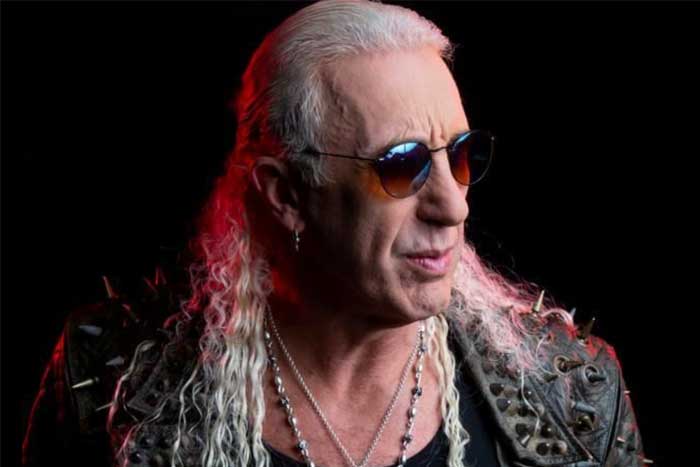
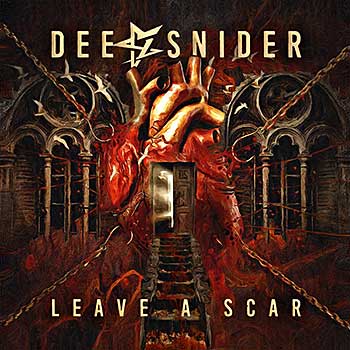
What are the lyrical themes? Is there a significance with the album artwork and the meaning of the title and songs?
Starting with the album cover, which is what Marcelo [Vasco] painted. We just told him the title of the album, and Jamey had this idea of a scarred heart, that we suffer a lot of scars in life on our journey and it’s tough sometimes. Marcelo was so inspired, the next day he delivered that painting. And just as the music is inspired in its own way, I loved the idea that this was inspired art. I never really did that kind of stuff with Twisted Sister. So here, I just liked it. But one thing I did add, you got that doorway, you got that bloody staircase. I want light in that doorway, because I really believe that there is hope. I really believe that at the end of the tunnel, there is a light and it’s not an oncoming train. It is hope and it is happiness and people can find that. So, he added that light in the doorway. As far as the songs go, it’s all started with “I Gotta Rock (Again).” It was this flashing thought in the middle of COVID. I thought that I was retiring, I thought that I was done with music. All of a sudden I thought, “I gotta rock again!” And I laughed to myself and thought that’s a Dee Snider title if I ever heard one. That was really the jump off point for the album. I like to think that whatever I write, even though it’s very aggressive and rebellious at times, there’s still this glimmer—like the doorway—of hope. Something like that, but a different route, which is straight on COVID-like—we got the shit kicked out of us people, but we’re not beaten. We can come back from this. “Silent Battles” is the one song I didn’t write the lyrics for. Jamey said to me, “We should write a song about depression because it’s worse than ever.” Two of my children have suffered with depression, but I haven’t. So, I didn’t want to be disingenuous and write from a position of something I have no understanding of. Jamey said he’d write the lyrics and I would sing them because this is an important message. “Before I Go,” when I told Jamey that song title, he said, “Are you dying?” I’ve learned some things through life that I want to share, what insights that I have, and the bigger picture about life is not about how many cars you have or how much money you have when you pass away. It’s about the effect you’ve had on the lives of others and how you’ve lifted them up and brought them along and made their lives better. I didn’t learn that until I was in my 50s. So, I wanted to share that message. Every song on the record reflects something going on in the world today. “Time to Choose,” I’ve always been very conscious of good and evil, and being aware of when we’re making good choices and when we’re making bad choices in our lives. “Burn in Hell” [from Stay Hungry] was a song that talks about that. “Sin After Sin” on my first album talks about that. You need to step back every now and then and check the path you’re on. Am I a good guy? Or am I a bad guy? Am I making good choices here or have I veered? In many times in my life I found myself on the wrong track, because we don’t realize it and we need to course correct.
“I REALLY BELIEVE THAT THERE IS HOPE. I REALLY BELIEVE THAT AT THE END OF THE TUNNEL, THERE IS A LIGHT AND IT’S NOT AN ONCOMING TRAIN.”
Album closer “Stand” mentions the album’s title in the lyrics. This track is anthemic and perfect for today’s times and the world’s social climate. It’s almost like “The Price” was back in the day but for this day and age.
You’re spot on! But in its own way, it’s a “We’re Not Going to Take It” as well. Maybe not in tempo—and they’re not the same kind of songs—but I definitely was writing an anthemic song. I view the first 11 songs as a beating to get your attention that starts with me punching you in the face and then punching you in the head and then punching you in the body. For 11 songs I’m punching away high-speed, non-stop and then suddenly I stop punching you and go, “Now that I have your attention, I want to tell you something very important.” And “Stand” was that. The title comes from the line, “Don’t leave your mark, leave a scar.” While a scar is often viewed as a negative thing, it can also be a positive thing—that lifting people up and helping people out. Leaving a mark is too much of a catchphrase. I painted my name on a building once when I was a kid, and they painted over it and it was gone the next day. That was my mark. But I carved my name in a tree and I recently went back there 55 years later, and it’s still in the tree. That’s the difference between a mark and a scar. You want to make sure that’s what you’re doing, people remember it. This is my job. I need to communicate. I need to get back to writing and communicating like I used to do. I have been given this voice. I have been given this platform and not everybody has it, and I should use it for good instead of evil.
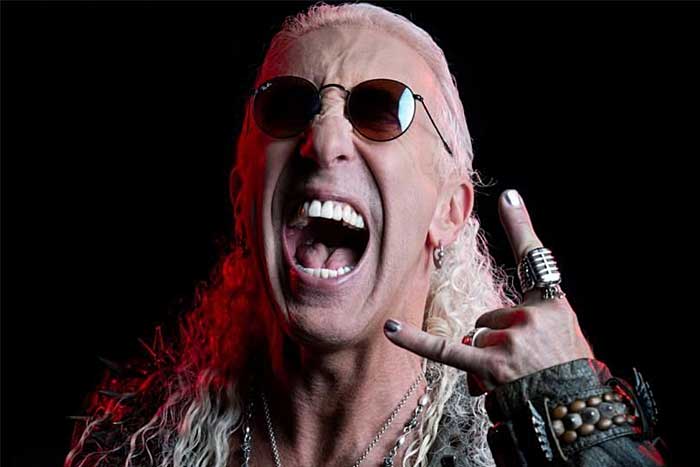
You’re definitely catering to the death metal fans with “Time to Choose” with Cannibal Corpse’s singer George “Corpsegrinder” Fisher. Were you guys friends beforehand? How did this track come to fruition?
I’m so proud to say that that was my idea. We had done 12 songs for the record, and Napalm said they needed a bonus track. So, we wrote, “Time to Choose,” which is very intense, very aggressive, very heavy. We’re in the studio, and it’s coming out real good. I was in-between takes on my vocals, and I said, “You know what would be great on this, George Fisher.” I’m always pushing to be heavier and heavier, but what I didn’t realize, and this is what Jamey said, “Nobody from your world ever acknowledges that world except to make fun of it or look down at. No one ever reaches across the aisle and says, ‘Hey, let’s do something together.’” And I didn’t think it was that big a deal, but then Napalm heard it and said, “Holy shit!” As a champion of metal in all its forms—old and new/light and heavy—I’m really glad that I had that idea because it was super cool. George couldn’t believe it when he got the call. I never met George before, but Jamey knew him. He was in disbelief. Jamey said he practically got emotional. He said, “Dee Snider wants me on his record?” I didn’t know he was a Twisted fan, you wouldn’t know it by listening to him. There’s only one neck like that! (laughs) I wasn’t doing it to feel any kind of pride, but I’m really glad that the idea came to me because I think it’s important that, we as a family, metal sticks together to a certain degree. We don’t have to always play or perform together, but we should accept and recognize each other’s value and support it. Even if you’re not a fan of every kind of metal, you should support the community.
You mentioned the Bellmore brothers earlier. Along with Russell and Nick, your band kicks ass. Of course, you’re the focal point, but what do they bring to the band?
When I work with any backing band, which I have over the years, I tell them, “Look, you’re hired guns. Yeah, it’s Dee Snider, but I don’t want you to stand there with your back to your amplifiers and not exist. Get out there and rock, challenge me on that stage. If you get in my way, I’m gonna knock you over, but I want you to make me work harder.” That always brings out the best in all musicians. We’ve been working together now for over two years, and somewhere around after the first year, it was my wife, Suzette, who said, “Your band kicks ass.” And I stopped for a minute. It is a band. These guys are my band. When it came time for the record, I had no question that I wanted my band on the album. In this day and age, people are really into everything being perfect. The one guitar player will do all the guitars, they’ll use machines to make the drums perfectly rhythmic. I said, “I want both guitar players playing. I want real stuff, I want real drums.” So, I think it works, it makes it sound bigger and better. The band is amazing.
“IT’S IMPORTANT THAT, WE AS A FAMILY, METAL STICKS TOGETHER TO A CERTAIN DEGREE. WE DON’T HAVE TO ALWAYS PLAY OR PERFORM TOGETHER, BUT WE SHOULD ACCEPT AND RECOGNIZE EACH OTHER’S VALUE AND SUPPORT IT.”
Twisted Sister’s debut album Under the Blade turns 40 next year. What do you think of the album’s longevity and legacy?
Under the Blade is one of those albums that was the result of years in the clubs. The songs were accumulated over years in the clubs, while subsequent albums were written for the next recording. So, there’s something special about an album like that. It’s raw as hell. It was recorded by Secret Records in a barn. We had bales of hay for sound baffles. We were literally in a barn recording. It was rude and crude. And for many people, it is their favorite album. It’s one of the most metallic Twisted records. We certainly were a metal band, but as we got in the studio, I embraced the studio environment and the ability to do other things, and it resulted in some huge records for Twisted Sister. I think many people—not the majority, by the way, it’s a minority—are Under the Blade fans and to them, that was the pinnacle of the Twisted Sister that they love.
At 66-years-old, you’re in good shape and your voice is still rocking. What’s the trajectory for your career? Are there any touring plans?
When you write down my age, could you please write down 66(6)? I like to say I’m 66(6), which is the most metal of ages! (laughs) I’ve made some wise choices. I accidentally made some other good choices during my life and it’s led to longevity, a strong voice, a strong physical body—no drugs, no alcohol. The first thing I bought when I struck it rich was a health club, a gym. I bought a house, a car, and then I bought a gym. I mean, who does that? When we signed with Atlantic Records and we recording You Can’t Stop Rock ‘n’ Roll, one of the requests was where’s nearest gym? As far as 2021, there’s a couple of bookings. I’m really looking at 2022 to get back to doing live shows. I want to be a part of the real return of rock ‘n’ roll to the theaters, to the festivals. I want to get up there and sing “You Can’t Stop Rock ‘n’ Roll” with a whole new meaning, one that I never envisioned. I’d never thought when I wrote that song in the late 70s that there’d be a time when rock was literally stopped in its tracks by a pandemic. I want to be there when the metal family returns, and we are victorious because we’re down but never out!




















